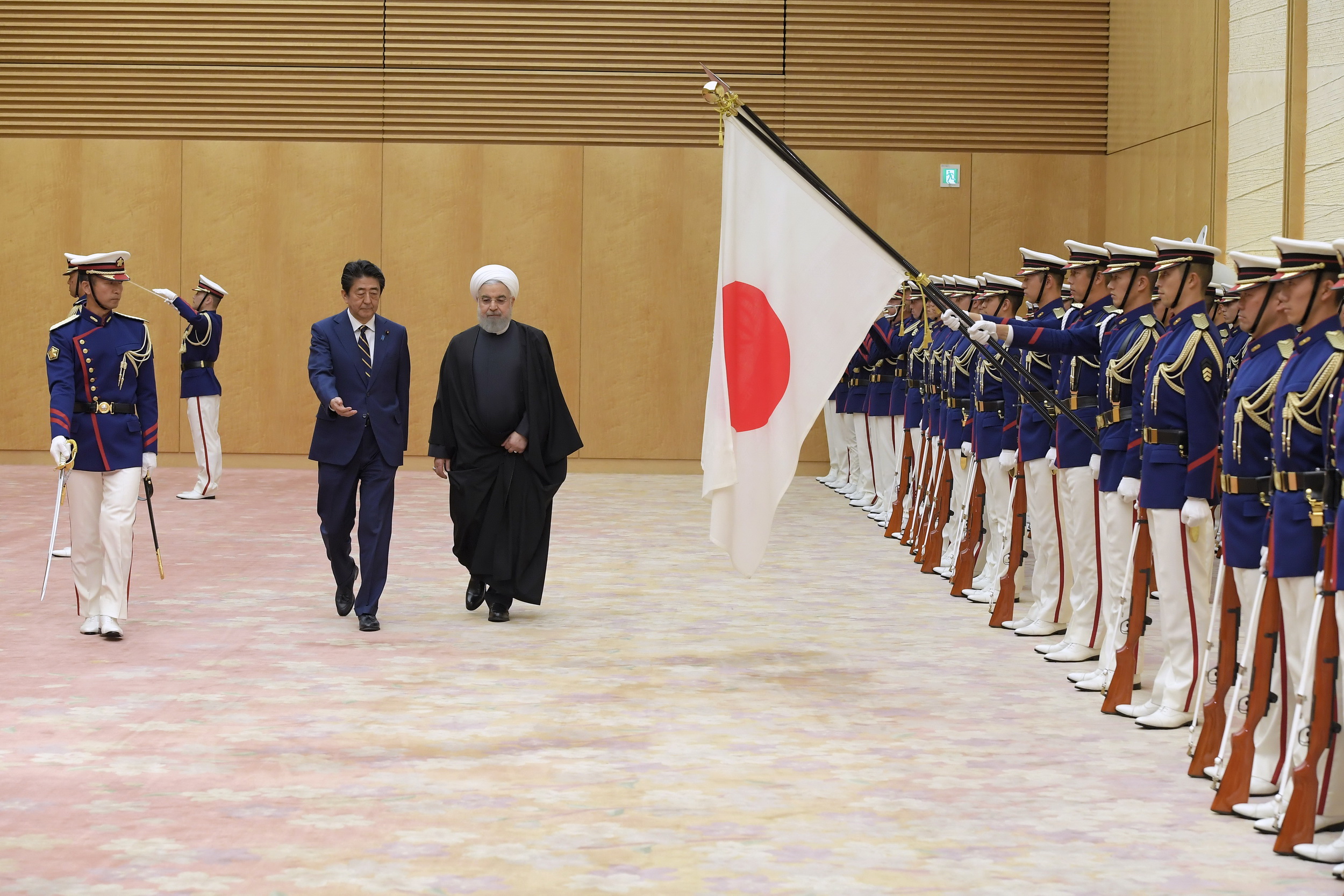The Iranian president and the Japanese prime minister have discussed the ongoing standoff between Tehran and Washington over the 2015 nuclear deal, and comprehensive bilateral ties.
“The nuclear deal is an extremely important agreement for Iran. That’s why we strongly condemn the United States’ one-sided and irrational withdrawal,” Iranian President Hassan Rouhani said at a meeting with Japanese Prime Minister Shinzo Abe, according to Iran’s Tasnim news agency.
Rouhani who became the first Iranian leader to visit Japan since 2000, arrived in the capital city of Tokyo on December 20 on an official invitation by Abe.
“We hope that Japan and other countries in the world will make efforts toward maintaining the accord,” Rouhani said and urged Japan to pursue stronger relations and to assist Iran, which is now suffering under the weight of severe Washington-imposed economic sanctions.
At the beginning of the meeting, Abe asked Rouhani to stick to commitments made in a landmark 2015 nuclear deal and said Japan would do everything possible to ensure stability in the Middle East. In turn, Rouhani asked the Japanese prime minister to work with the other countries to help keep the nuclear deal in place.
The two leaders also explored avenues for bolstering and reinvigorating bilateral relations, and underlined the need to enhance the level of trade exchanges between the two countries.
Rouhani’s visit should be described as an effort to break the deadlock over the 2015 nuclear deal after the U.S. withdrawal from the deal in May 2018. U.S. President Donald Trump also ratcheted up sanctions on Iran to pressure its economy by ending its international sales of crude oil.
In an interview with reporters ahead of his trip, Rouhani refused to refer to mediation as a key agenda point during the upcoming visit, saying that “the US tyrannical pressure and illegal sanctions will not sustain.”
“World nations are seeking close and good ties with Iran,” he said, according to a report by IRNA.
Iranian officials have expressed hope that Japan will resume buying Iranian crude oil by defying or bypassing U.S.-imposed sanctions, which have led to severe inflation, damaging the livelihoods of Iranians. Senior Japanese officials, however, have said Tokyo won’t be able to satisfy Tehran’s wishes as Washington has maintained a tough stance against anyone who defies the sanctions, according to The Japan Times.
Japan was a leading buyer of Iranian oil for decades, but stopped purchases to comply with the U.S. sanctions imposed after Washington unilaterally quit the nuclear deal. In 2017, Iran supplied 5.2 percent of Japan’s crude oil imports.
The trip followed Washington’s proposal to create a coalition to safeguard strategic waters near the Strait of Hormuz — a key military choke point — in order to keep the Iranian military force in check. At the same time, the Japanese prime minister has also planned to dispatch a Self-Defense Force destroyer and a patrol plane to the Middle East, from which Japan imports nearly 90 percent of the crude oil it consumes each year.
Tokyo has been under pressure since the U.S. urged Japan to join its coalition patrol force, as a military ally of the U.S. Japan has relied heavily on U.S. military forces to maintain peace and stability in the Middle East, but participation in the U.S.-led coalition patrol force against Iran would cause a deterioration in Japan’s ties and even damage the country’s long-established reputation as a politically neutral presence in the region.







 President Aliyev emphasized the critical role of the North-South Transport Corridor in fostering transport cooperation between Azerbaijan and Russi...
President Aliyev emphasized the critical role of the North-South Transport Corridor in fostering transport cooperation between Azerbaijan and Russi...
 Armenian sappers commenced on Monday mine-clearance operations in the territories adjacent to the Saint Mary Church in village of Voskepar (Armenia...
Armenian sappers commenced on Monday mine-clearance operations in the territories adjacent to the Saint Mary Church in village of Voskepar (Armenia...
 Russian Foreign Minister Sergei Lavrov has reasserted that Moscow has no intentions to stop the fighting in Ukraine, even if peace talks commence.
Russian Foreign Minister Sergei Lavrov has reasserted that Moscow has no intentions to stop the fighting in Ukraine, even if peace talks commence.
 Iran has refuted reports of alleged damage to Shimon Peres Negev Nuclear Research Centre located southeast of Dimona, Israel, during the recent air...
Iran has refuted reports of alleged damage to Shimon Peres Negev Nuclear Research Centre located southeast of Dimona, Israel, during the recent air...
 Iran’s Foreign Minister, Hossein Amir-Abdollahian, has labeled a foiled Israeli drone attack in certain parts of the country as a "failure" for Isr...
Iran’s Foreign Minister, Hossein Amir-Abdollahian, has labeled a foiled Israeli drone attack in certain parts of the country as a "failure" for Isr...



